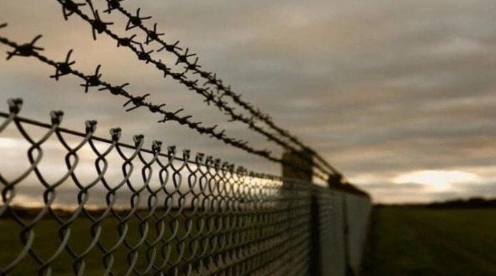CRITTERFENCE views fences as individual pieces, with each one having its personality and style. We are always surprised when customers tell us that a chain-link fence is all they need. You’ll find a lot of different sizes, gauges, and uses for the chain link fence. We’ll be looking at these details today, to help you better appreciate this reliable workhorse: the chain-link fence.
Gauge
The fence gauge can be compared to a bass guitar’s strings: the lowest gauge is the strongest and most durable, as well as the largest in diameter. A low gauge is necessary to create a strong fence. An 11 or 11 would be ideal. A very thin gauge would be 20. Also, the gauge can be measured in inches. An example of this is an 8.5 gauge welded or woven wire, which is 0.155 inches thick. A 27 gauge, however, is only 0.0173 inches.
Mesh size
The classic diamond-shaped chain link is the best, but mesh openings can be square, hexagonal, or rectangular. Manufacturers can make the tiny mesh, as small as 1/8 by 1/8 inches. They also can make 12-inch squares. A fence with smaller openings is more durable and rigid. The best mesh size will depend on the intended use of your project.
Wire type
Even though they look very similar, chain link fences are easy to recognize. The wire fences type can make a huge difference in how long your fence lasts. These are just a few of the types you should consider:
Galvanized before Weld – This type of fence uses galvanized wire. Then, the strands are joined to form a mesh. The welding process can burn wire intersection points and make them vulnerable to rust. This fencing material is cheap and has a short life span.
Galvanized after Weld (GAW) This mesh is stronger and can be galvanized against rust following welding. It looks exactly like the name suggests.
Stainless Steel –Stainless steel is a fencing superpower that resists corrosion, rust, and chemicals. This is a great choice for seaside fencing or any other areas that are exposed to salt water.
Vinyl Coated (VC), – This wire is fused with heat by a thick layer of PVC, usually in stylish black or sage green. This creates a strong, weather-resistant, and durable fence.
Uses
You might instinctively choose the strongest fence, a low-gauge tight-mesh steel fortress. The best fence depends on what you need.
Fences are built to limit animals. They can be used to either keep desirable animals out or to block unwanted ones. You can keep rodents out of your yard by using smaller mesh. What if Fido wants to have a view of your yard while he explores it? Perhaps a three-inch mesh galvanized after welding might be more appealing.
The right fencing is essential for livestock farmers. Goat owners are well aware that 6-inch square mesh is a killer for their goats. Sometimes goats can get through but they can also get stuck on their ears, which could lead to strangulation or death by coyotes. One goat that we interviewed said to us, “Give me 12-inch-thick wire rectangles, please”.
It is important to consider the height of your fence. It is also important to consider the height of your fence.
Qualitative
Whatever you do, don’t scrimp on quality. There won’t be many variations in labor costs between meshes and gauges. While a stronger fence made with higher quality materials may cost more but lasts 100 percent longer than one that is cheaper, it will still be 20 percent less expensive. Call CRITTERFENCE if you are ready to invest in a stronger fence but it will last 100 percent longer than a cheaper one.
Also Read: 10 Most Common Occupational Diseases.
